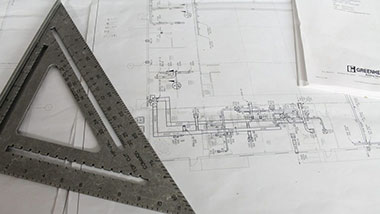Florida Supreme Court Disagrees With Using Daubert Standard
Personal InjuryIn the case of Richard Delisle v. Crane Co., Case Number SC16-2182 (Fla. October 15, 2018), the Florida Supreme Court announced its disapproval of the Daubert standard as an unconstitutional infringement on the Court’s rule making authority. The Court had previously rejected the Daubert standard (codified in section 90.702, Fla. Stat. and passed in 2013) as a rule of procedure. This leaves no doubt that the Daubert standard cannot be used in Florida’s courts.
UPDATE- The Florida Supreme Court adopted the Daubert standard as of May 23, 2019. Please note that the membership of the court changed due to retirements and appointments made by Governor DeSantis. Check out our Florida Guide to Daubert.
What Is The Daubert Standard For Expert Testimony?
The first thing to know about Daubert and Frye is that these “standards” are for “new or novel scientific evidence.” In other words, these tests are ways to determine whether previously untested science can come into evidence in a courtroom.
With that being said, the Frye standard comes from Frye v. United States, 293 F. 1013 (D.C. Cir. 1923) and requires that an experimental scientific discovery or principle must have gained “general acceptance in the particular field in which it belongs” in order to be admitted into evidence.
On the other hand, in Daubert v. Merrell Dow Pharmaceuticals, 509 U.S. 579 (1993), the United States Supreme Court announced a new rule applicable for federal courts that “in order to qualify as ‘scientific knowledge,’ an inference or assertion must be derived by the scientific method” and places the trial judge in the position as “gatekeeper” as to what new or novel science can come into evidence. Daubert was supposed to be a more “liberal” standard of evidence by allowing evidence that had been previously excluded under Frye.
Over the years since Daubert, the standard has been misapplied to become much more restrictive than Frye in what new or novel scientific evidence can be allowed in a courtroom. Daubert has been repeatedly used to challenge “pure opinion” testimony of experts, particularly medical opinions of plaintiffs’ doctors, as “new or novel” simply because there was little research or studies to support the opinion, which was based on “observation and experience” of the expert. Eventually, Daubert became a tool for insurance companies defending lawsuits to restrict expert medical testimony only to subjects that have been the subject of a published “study” (as we all know, “published” studies are funded by those who have an agenda-no one creates a study unless there is money to be made off the results).
This is why the Daubert standard eventually became favored by “tort reformers” in the Florida Legislature and was eventually passed in section 90.702, Fla. Stat. in an attempt to “modernize” Florida’s courts.
Why Florida’s Courts Do Not Approve Of Daubert
Federal courts do not have a choice because the U.S. Supreme Court decided Daubert. However, state courts are not bound by federal decisions regarding procedure.
Article V, Section 2(a) of the Florida Constitution gives the Florida Supreme Court the exclusive authority to adopt rules for the practice and procedure of all Florida courts. As that is the case, the Florida Legislature can only “repeal” the rules of procedure established by the Court by passing a “general law” approved by a two-thirds majority (“super-majority”) in each house of the Legislature.
Substantive v. Procedural Law
In Florida, the Legislature has the power to enact “substantive laws.” Substantive law “defines, creates, or regulates rights…i.e. the rights of life, liberty, property, and reputation.”
On the other hand, “procedural law” is the “form, manner, or means by which substantive law is implemented” or “the method of conduction litigation involving rights and corresponding defenses.”
The differences between substantive law and procedural law is not always clear.
What Does This Mean For Your Case?
As mentioned above, the first step toward determining whether you have a Frye or Daubert issue is whether your case involves “new or novel” scientific evidence. If your case does not involve new or novel science, then there should be no Frye or Daubert analysis. The case opinion directly says “[w]e have previously recognized that Frye is inapplicable to the vast majority of cases because it applies only when experts render an opinion that is based upon new or novel scientific techniques.” Do not forget that.
Second, the Frye standard is simply a reliance on the scientific community to determine whether a new or novel scientific principle is reliable (whereas Daubert relies on judges to make that decision). Therefore, when faced with a Frye challenge to an expert’s opinion, you should ask whether other experts in the same field “rely” on the same technique (aka “general acceptance”). If other experts use the same technique, then your expert’s testimony meets the Frye test (even if the defense disagrees with the outcome and there is a “battle of the experts” in court).
Get Help With Your Case
If you have a personal injury case in Lakeland, Florida, you should hire a personal injury attorney in Lakeland, Florida for professional legal help. Contact us today to schedule your free consultation with an attorney.


